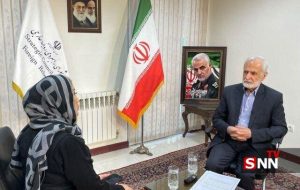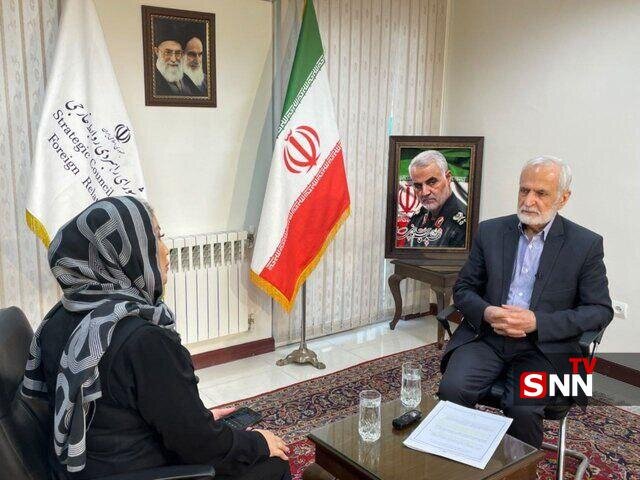Leader’s advisor says Iran may change nuclear doctrine if threats become ‘existential’
TEHRAN – Kamal Kharrazi, Iran’s former Foreign Minister and head of Iran’s Strategic Council on Foreign Relations, has clarified that while Iran’s policy against nuclear weapons remains intact, any existential threat to Iran could alter this stance. The advisor to the Leader of the Islamic Revolution made the remarks in an interview with Lebanon’s Al


TEHRAN – Kamal Kharrazi, Iran’s former Foreign Minister and head of Iran’s Strategic Council on Foreign Relations, has clarified that while Iran’s policy against nuclear weapons remains intact, any existential threat to Iran could alter this stance.
The advisor to the Leader of the Islamic Revolution made the remarks in an interview with Lebanon’s Al Mayadeen, where he offered insights into Iran’s nuclear policy and regional security stance.
Kharrazi began by emphasizing that while Iran currently refrains from developing nuclear weapons due to a religious decree, this position might not hold if Iran faces an existential threat. “Iran has respected the Leader’s fatwa prohibiting nuclear weapons,” Kharrazi stated, “but if the survival of Iran comes under serious threat, we reserve the right to reconsider.”
Kharrazi criticized European countries for not reciprocating Iran’s respect for their concerns, particularly over missile ranges and regional security sensitivities.
“Iran no longer feels obliged to consider European concerns,” he said, hinting at Iran’s growing willingness to increase missile ranges if its own concerns continue to be ignored.
“Iran’s missile capabilities are evident,” Kharrazi continued, “and if Europe continues to overlook our red lines, we see no need to be bound by their sensitivities.”
In discussing recent Israeli actions, Kharrazi addressed Israel’s continued miscalculations. He referenced the recent “True Promise II” operation, an Iranian missile strike in retaliation for Israeli aggression, describing Israel’s response as disproportionately weak.
He remarked, “Israel’s defense capabilities were overstated, and their inadequate response has caused frustration among their own ranks.” When asked if Iran was preparing for a possible True Promise III, Kharrazi replied that Iran would respond decisively when necessary.
He added, “Israel has made repeated miscalculations, including its belief that it could eradicate Resistance movements like Hamas and Hezbollah through military actions and assassinations of their leaders.”
Kharrazi further elaborated on Iran’s approach to deterrence, noting that Iran stands prepared for war, though it seeks to avoid escalation. He stated that Iran’s recent responses to Israeli provocations have effectively demonstrated its deterrence capabilities. “The path forward depends on Israel; if it continues its aggressive actions, Iran will respond accordingly,” Kharrazi warned.
Kharrazi also discussed Iran’s position on the Gaza ceasefire talks, clarifying that while Iran supports Palestinian interests, it is not directly involved in ceasefire negotiations. “The decision lies with the Lebanese and Palestinian people, and Iran will support their choices,” he explained.
Concluding the interview, Kharrazi spoke about Iran’s regional approach, reiterating Tehran’s strategic intent to build and strengthen relationships with neighboring states.
He underscored Iran’s policy of maintaining constructive ties across the region to enhance collective security. “Iran’s goal is to pursue peace and security through collaboration with all neighboring countries, and we are committed to this course,” he said, signaling Iran’s intention to remain a stabilizing influence amidst rising tensions in West Asia.
